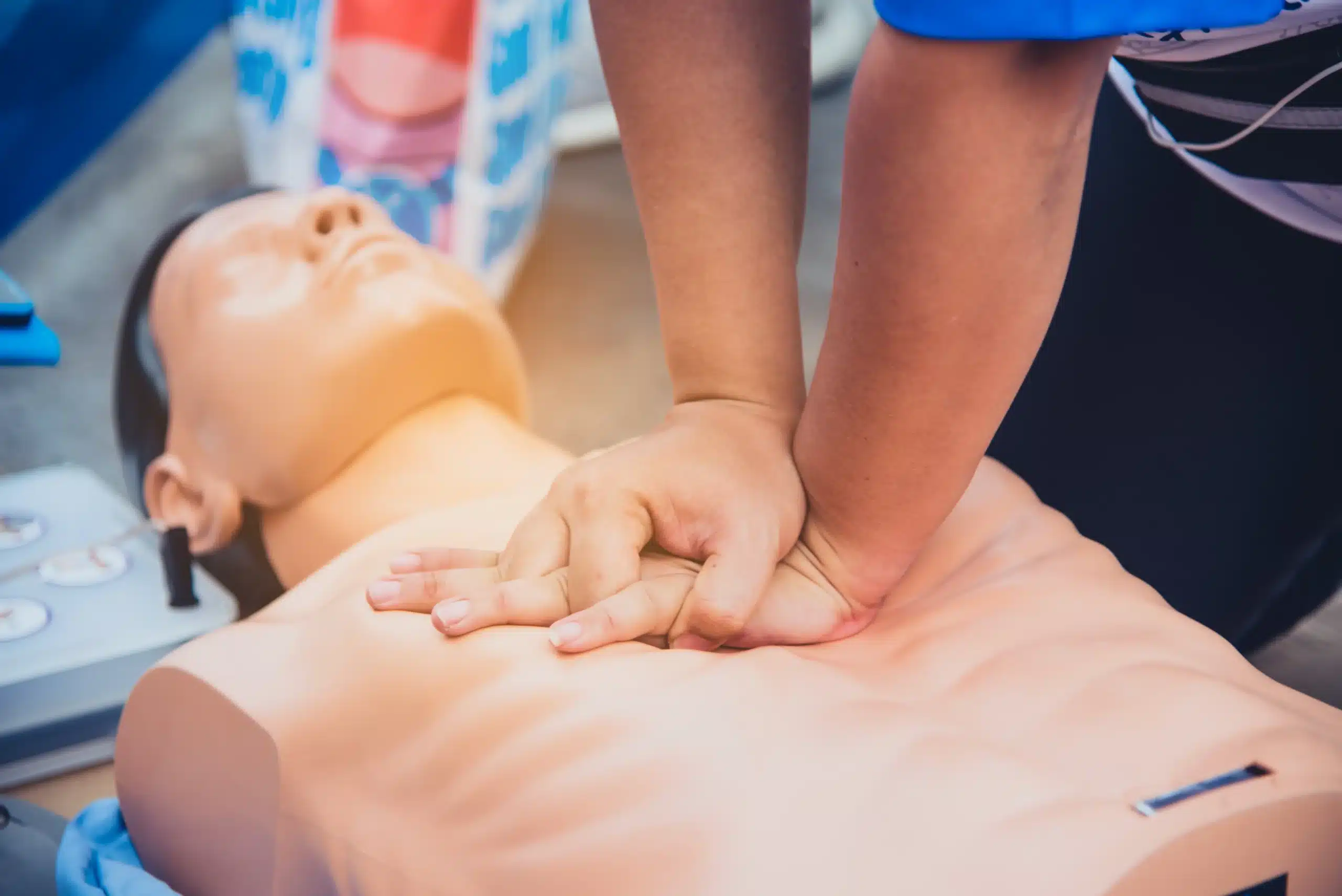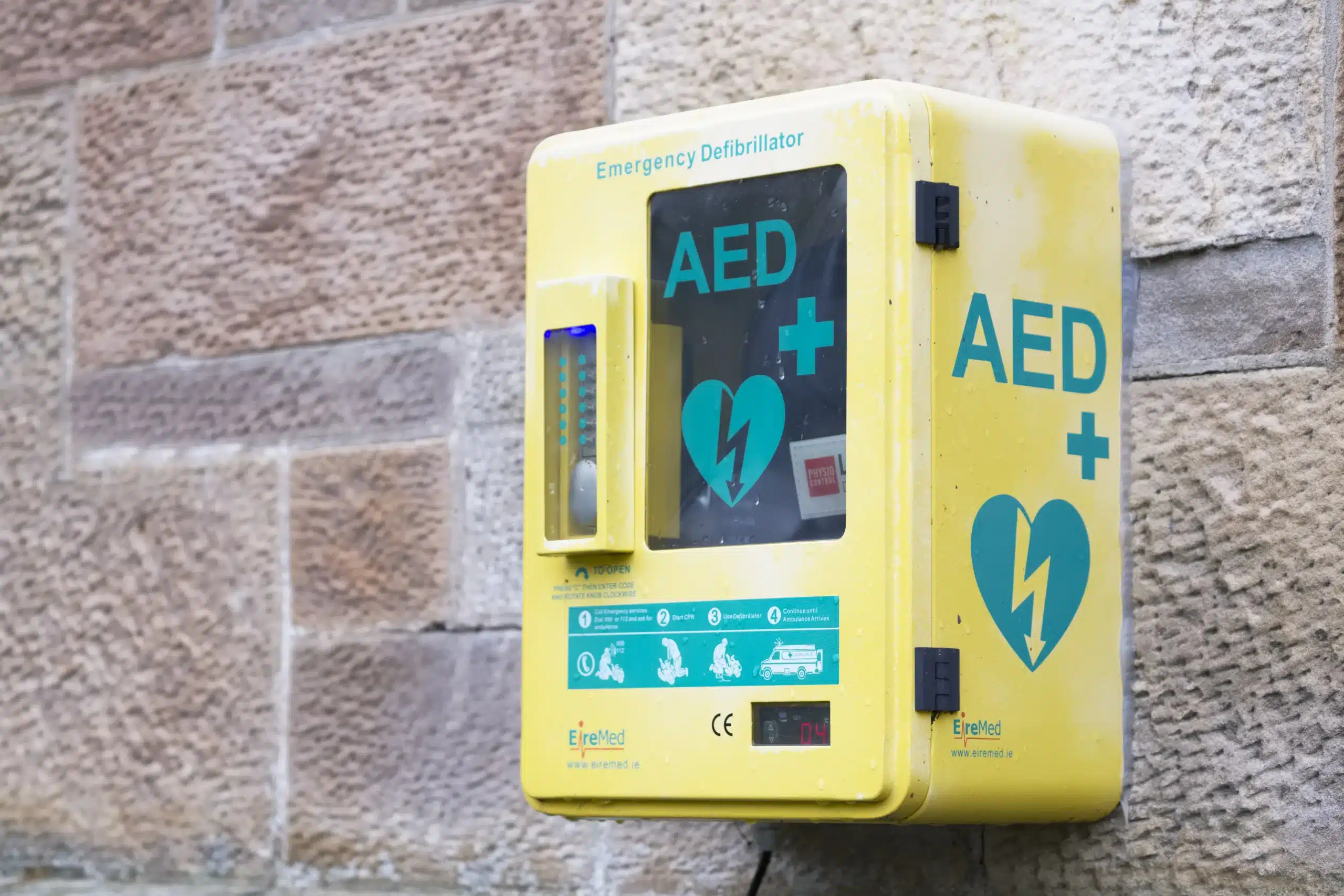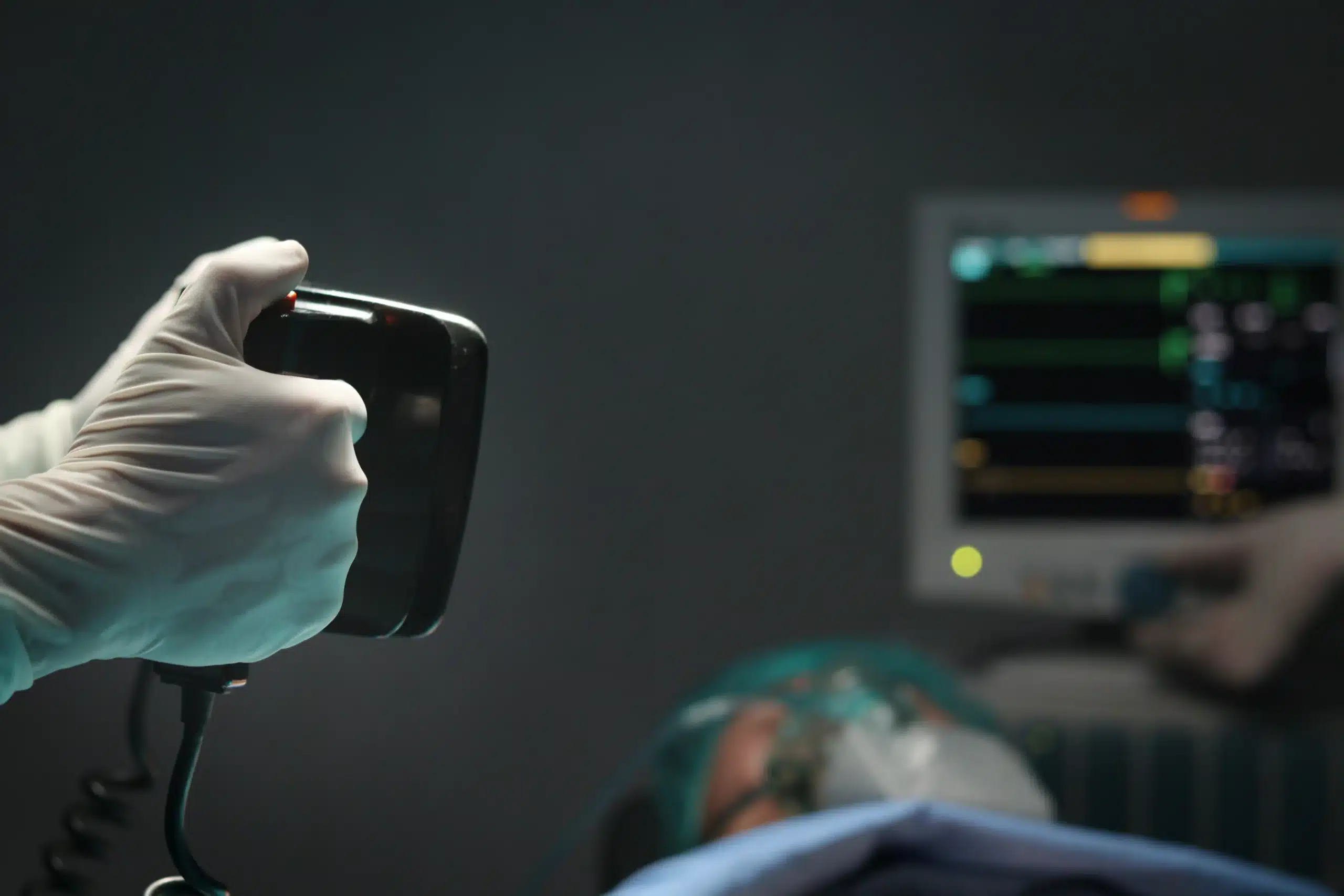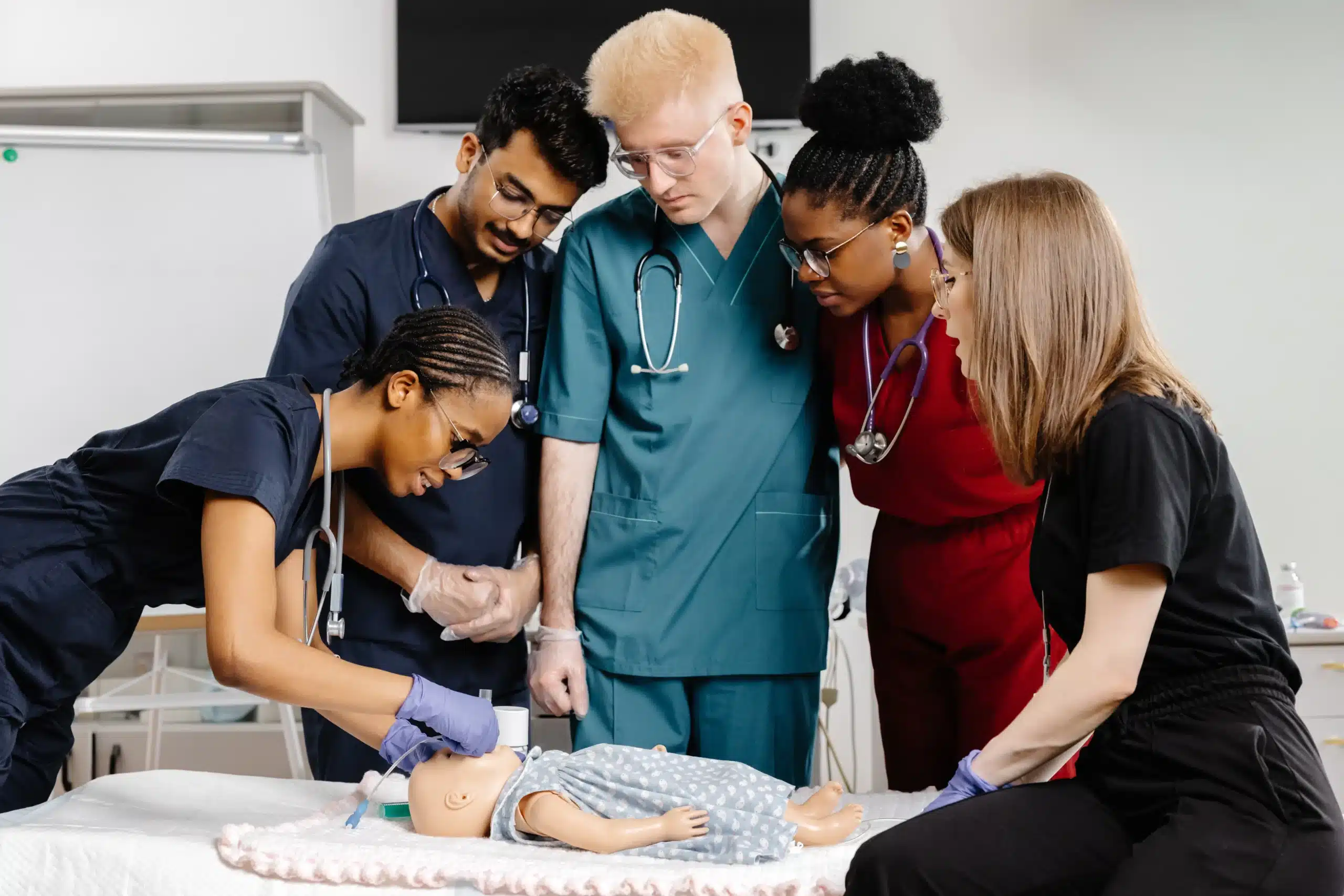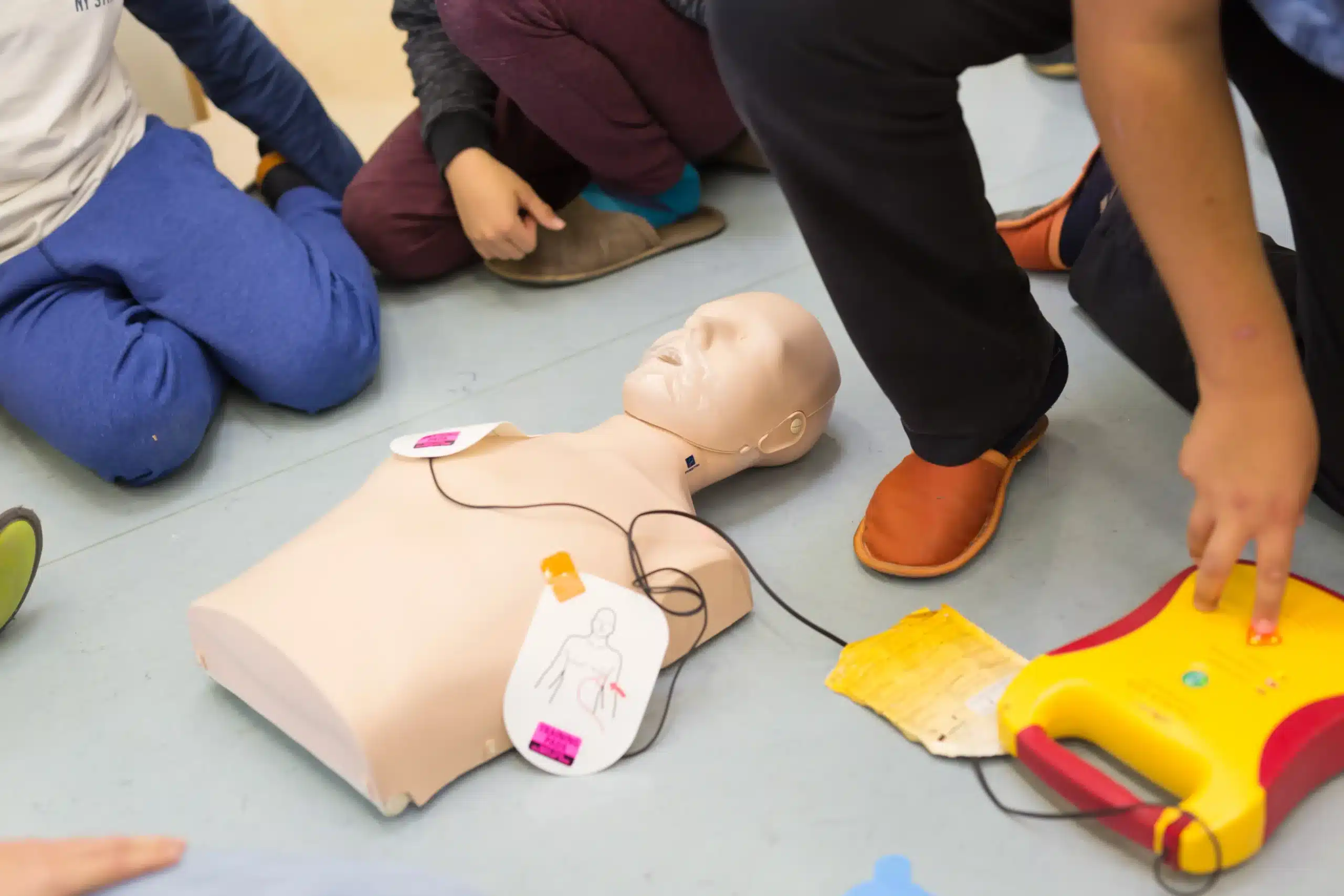Working in healthcare, especially with young patients, means being prepared for anything. From minor injuries to life-threatening emergencies, having the right skills can make all the difference. That’s where Pediatric Advanced Life Support (PALS) training comes in. If you’re a healthcare provider in Oakland, PALS certification isn’t just a credential—it’s a critical tool that empowers you to confidently handle pediatric emergencies. This post breaks down everything you need to know about PALS, from what the training covers to where to find the best pediatric advanced life support in Oakland. We’ll also explore common misconceptions, course structures, and tips for acing your certification. Let’s get started!
Key Takeaways
- PALS certification provides specialized skills for pediatric emergencies. It goes beyond basic life support training, giving healthcare providers the expertise to effectively manage life-threatening situations in infants and children.
- Choosing the right PALS provider is essential. Look for AHA-accredited courses, experienced instructors, and a blended learning format that combines online coursework with hands-on practice. Consider factors like location, cost, and scheduling options.
- Active participation is key to PALS success. Engage with the material, ask questions, and fully immerse yourself in the simulations. This practical experience will build your confidence and prepare you to handle real-world pediatric emergencies.
What is Pediatric Advanced Life Support (PALS)?
What is PALS and why is it important?
Pediatric Advanced Life Support (PALS) is a specialized course designed to equip healthcare providers with the knowledge and skills to effectively manage pediatric emergencies. PALS certification shows a commitment to providing high-quality care for infants and children. It’s crucial because children don’t present symptoms the same way adults do. This specialized training helps providers quickly and accurately assess, diagnose, and treat young patients in life-threatening situations. Ultimately, PALS training empowers providers to improve patient outcomes and potentially save lives.
What does PALS training cover?
PALS training covers a wide range of topics essential for managing pediatric emergencies. The curriculum covers everything from recognizing early signs of respiratory distress and shock to administering medications and providing advanced airway management. Participants learn systematic approaches to assessment and treatment, following established PALS protocols and guidelines to ensure consistent, effective care. The course emphasizes a team-based approach, promoting communication and collaboration among healthcare professionals.
Who needs PALS certification?
While anyone can benefit from basic life support training, PALS certification is specifically for healthcare professionals who regularly work with infants and children. This includes physicians, nurses, paramedics, respiratory therapists, and other medical personnel working in emergency departments, intensive care units, and pediatric wards. PALS certification is often a job requirement in these settings, reflecting the specialized skills needed to care for young patients in critical situations.
Common PALS misconceptions
There are several common misconceptions surrounding PALS certification. Some believe it’s only necessary for those working in hospitals, but PALS skills can be invaluable in any setting where a child might experience a medical emergency. Another misconception is that PALS is the same as basic life support (BLS). While BLS provides a foundation in CPR and basic first aid, PALS builds upon this, addressing the specific physiological differences and treatment needs of infants and children. Finally, some experienced healthcare providers might assume they don’t need PALS training. However, even seasoned professionals benefit from the updated guidelines and refined skills taught in a PALS course. Regularly refreshing these skills ensures providers remain at the forefront of pediatric emergency care.
Find Top PALS Providers in Oakland
Finding the right Pediatric Advanced Life Support (PALS) provider is key for healthcare professionals. Here are a few Oakland options to consider:
Safety Training Seminars
Safety Training Seminars offers AHA-accredited PALS courses alongside CPR, BLS, ACLS, and First Aid training, right here in Oakland. They emphasize high-quality instruction and competitive pricing. Their convenient location serves Alameda and Berkeley, too. Check out their low price guarantee and group discounts.
Project Heartbeat
Project Heartbeat provides PALS certification and renewal courses using an instructor-led format incorporating videos and simulated emergencies. This hands-on training gives participants practical experience in pediatric care during crises.
HeartStart CPR
HeartStart CPR offers AHA PALS certification and recertification classes throughout the San Francisco Bay Area. Their course covers pediatric assessment, respiratory emergencies, vascular access, airway management, pharmacology, algorithms, BLS review, case studies, and teamwork.
American Heart Association Training Centers
AHA-certified training centers offer standardized, up-to-date training recognized nationwide. AHA certification covers everything from basic CPR to advanced life support (ACLS/PALS) and is a valuable credential for healthcare professionals.
Oakland CPR Classes
Oakland CPR Classes offers essential PALS training in Oakland, with daily courses for both initial certification and renewal. This makes it easy for local providers to access the training they need.
Get PALS Certified: Course Structure and Process
Course format: Online and hands-on training
Safety Training Seminars offers a blended learning approach to PALS certification, combining online coursework with in-person skills sessions. This format allows you to learn the material at your own pace online and then practice essential skills in a controlled environment with expert instructors in Oakland. This hands-on component provides immediate feedback and helps build confidence.
Course duration and key topics
The initial PALS course takes approximately 12 hours to complete, while the renewal course is around 7 hours. The curriculum covers a comprehensive range of topics crucial for pediatric emergency care. You’ll learn about pediatric assessment, managing respiratory emergencies, vascular access techniques, airway management, essential pharmacology, and key algorithms. The course also includes a BLS review, case studies, and training in effective teamwork. Learn more about PALS courses.
Master critical skills and techniques
PALS certification goes beyond basic CPR training, equipping you with specialized skills to recognize and respond to life-threatening pediatric emergencies. You’ll gain the confidence to handle situations involving infants and children, focusing on the specific physiological differences and treatment protocols unique to this population. Explore the importance of PALS certification.
Costs and discounts
The total cost for PALS certification through Safety Training Seminars is $290, covering the online course, in-person skills testing, and your official certification card. They offer a low price guarantee and are committed to providing affordable, high-quality training. Review PALS course details. Discounts are available for group classes.
Certification validity and renewal
Your PALS certification is valid for two years. You’ll receive your certification card the same day you complete the course. Find additional details on course duration and certification.
Realistic scenarios and simulations
PALS training isn’t just lectures and textbooks. The course incorporates realistic simulations and real-life scenarios to help you develop practical skills and build confidence in responding effectively in actual emergencies. This immersive approach allows you to apply your knowledge in a safe environment and hone your critical thinking and decision-making abilities under pressure. Discover how PALS training enhances emergency response.
Ace Your PALS Certification
Getting your PALS certification is a significant step, so you’ll want to be set up for success. Here’s what to consider as you prepare for your PALS course.
Choose the right provider
Finding the right provider is key to a positive learning experience. Look for a provider that offers American Heart Association (AHA) accredited courses. Safety Training Seminars offers AHA-certified PALS training in Oakland, along with other certifications like BLS, ACLS, and First Aid. Having all these courses available in one place is convenient.
Instructor qualifications and experience
Experienced, certified instructors make all the difference. AHA-certified courses ensure you receive standardized, up-to-date training, which is often a requirement for many employers. Ask potential providers about their instructors’ backgrounds and experience.
Benefits for Oakland healthcare professionals
For healthcare professionals in Oakland, PALS certification is often essential. It equips you with the skills to handle pediatric emergencies, contributing to better patient outcomes. This specialized training can be a valuable asset to your career. Learn more about PALS Certification for Healthcare Professionals.
Tips for PALS certification success
Preparing for your PALS course can significantly improve your chances of success. Take advantage of any pre-course materials your provider offers. Actively participate in class discussions and simulations. These sessions provide opportunities for immediate feedback and hands-on practice, which is invaluable for mastering the material. Safety Training Seminars emphasizes this hands-on training.
Overcome PALS training challenges
One common challenge is balancing work schedules with training. Look for providers that offer flexible scheduling options, such as weekend or evening classes. Knowing potential scheduling conflicts upfront helps you plan accordingly. Read about challenges healthcare workers face.
Improve performance and patient outcomes
PALS training enhances your ability to respond effectively in medical emergencies. It equips you with the skills and confidence to provide high-quality care to pediatric patients, leading to improved outcomes. Learn more about how PALS training improves emergency response.
Related Articles
- PALS Classes in Oakland, CA – Oakland CPR Classes
- BLS ACLS PALS Courses in Oakland: Your Complete Guide – Oakland CPR Classes
- PALS HeartCode Oakland: Your Certification Guide – Oakland CPR Classes
- Online PALS Classes in Berkeley: Your Guide – Oakland CPR Classes
- CPR Myths Exposed: Truth Behind Common Misconceptions
Frequently Asked Questions
Is PALS certification different from BLS? Yes, PALS builds upon the foundational skills taught in BLS (Basic Life Support). While BLS focuses on basic CPR and first aid, PALS delves into the specific physiological differences and treatment needs of infants and children. It provides healthcare providers with the advanced knowledge and skills necessary to manage pediatric emergencies effectively.
Where can I find reliable PALS training in Oakland? Several reputable organizations offer PALS certification in Oakland. Safety Training Seminars is a great option, providing AHA-accredited courses with a focus on high-quality instruction and competitive pricing. They also offer other certifications like BLS, ACLS, and First Aid. You can also explore options like Project Heartbeat, HeartStart CPR, and directly through American Heart Association Training Centers. When choosing, consider factors like instructor experience, course format (online vs. in-person), and overall cost.
How long is PALS certification valid, and how do I renew it? PALS certification is typically valid for two years. Renewal involves completing a shorter refresher course that covers updated guidelines and reinforces essential skills. Check with your certifying organization, like Safety Training Seminars or the AHA, for specific renewal requirements and available courses.
What if I have a busy schedule and can’t attend regular classes? Many PALS providers understand the demands of healthcare professionals and offer flexible scheduling options. Look for providers like Safety Training Seminars that offer weekend or evening classes, or blended learning formats that combine online coursework with in-person skills sessions. This allows you to complete some of the training at your own pace and attend in-person sessions when your schedule allows.
What can I do to prepare for my PALS course and increase my chances of success? Thorough preparation can significantly improve your learning experience. Review any pre-course materials provided by your chosen training center. During the course, actively participate in discussions and simulations to maximize hands-on practice and receive immediate feedback from instructors. Don’t hesitate to ask questions and clarify any doubts you may have.

